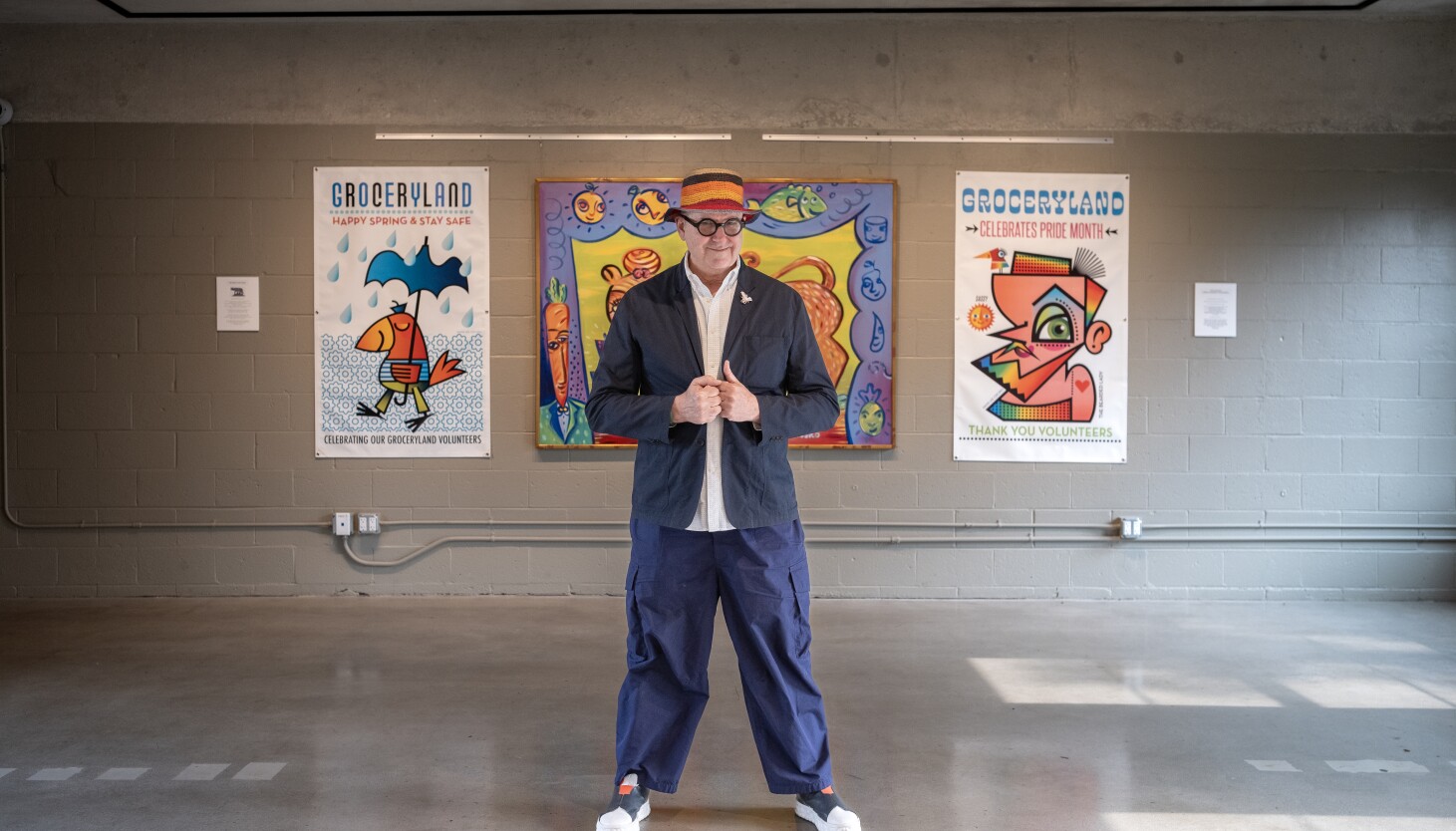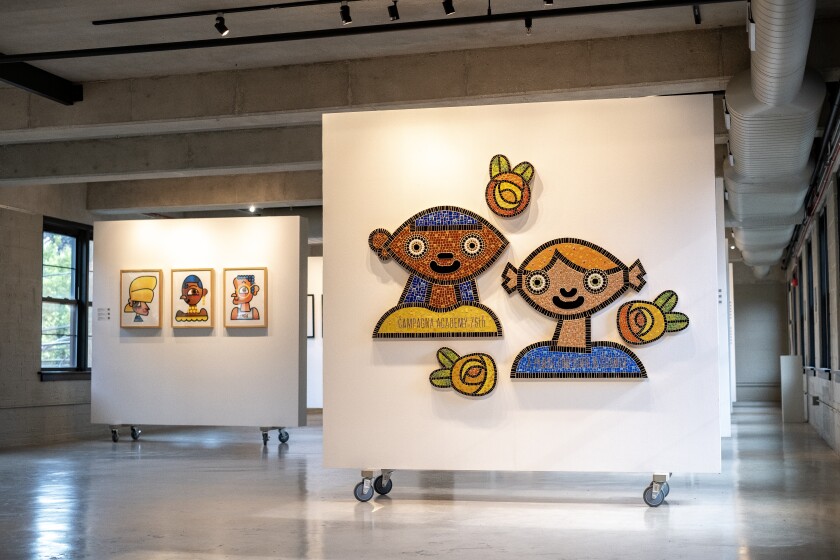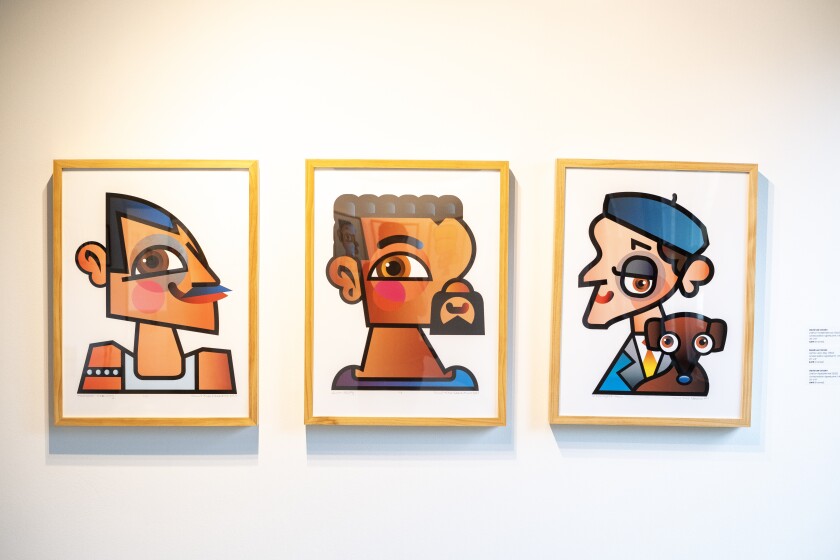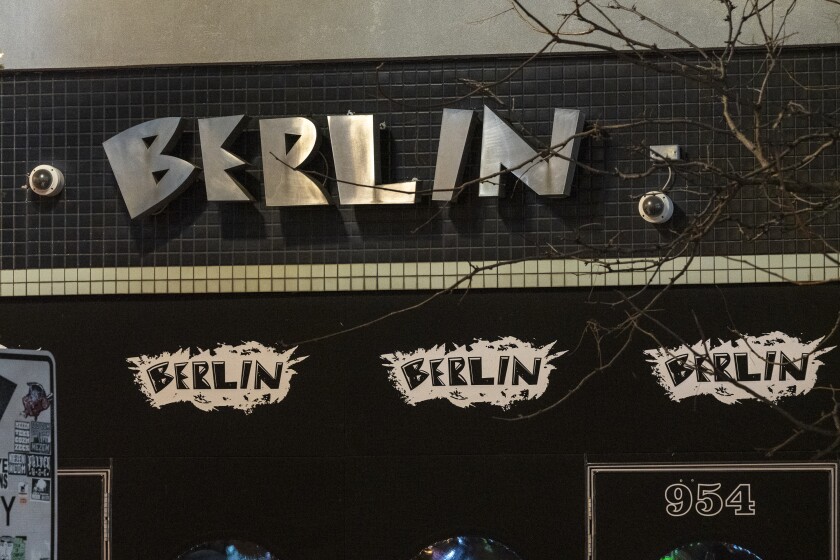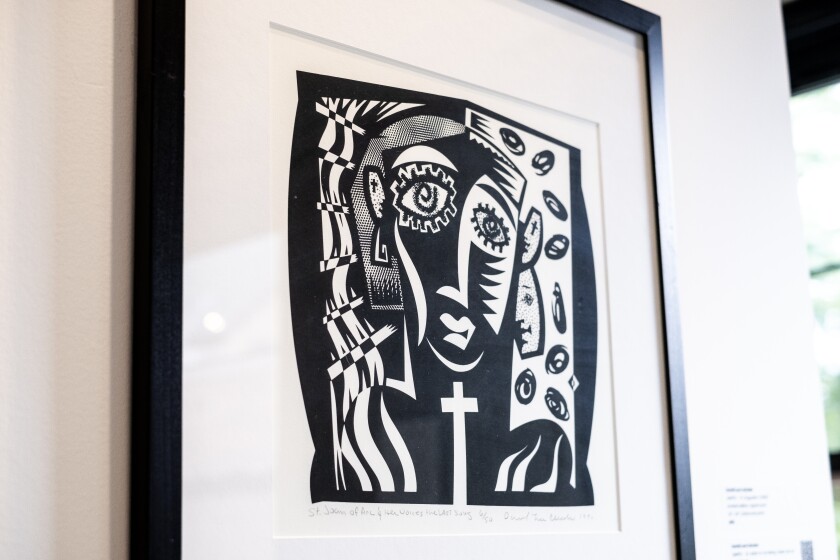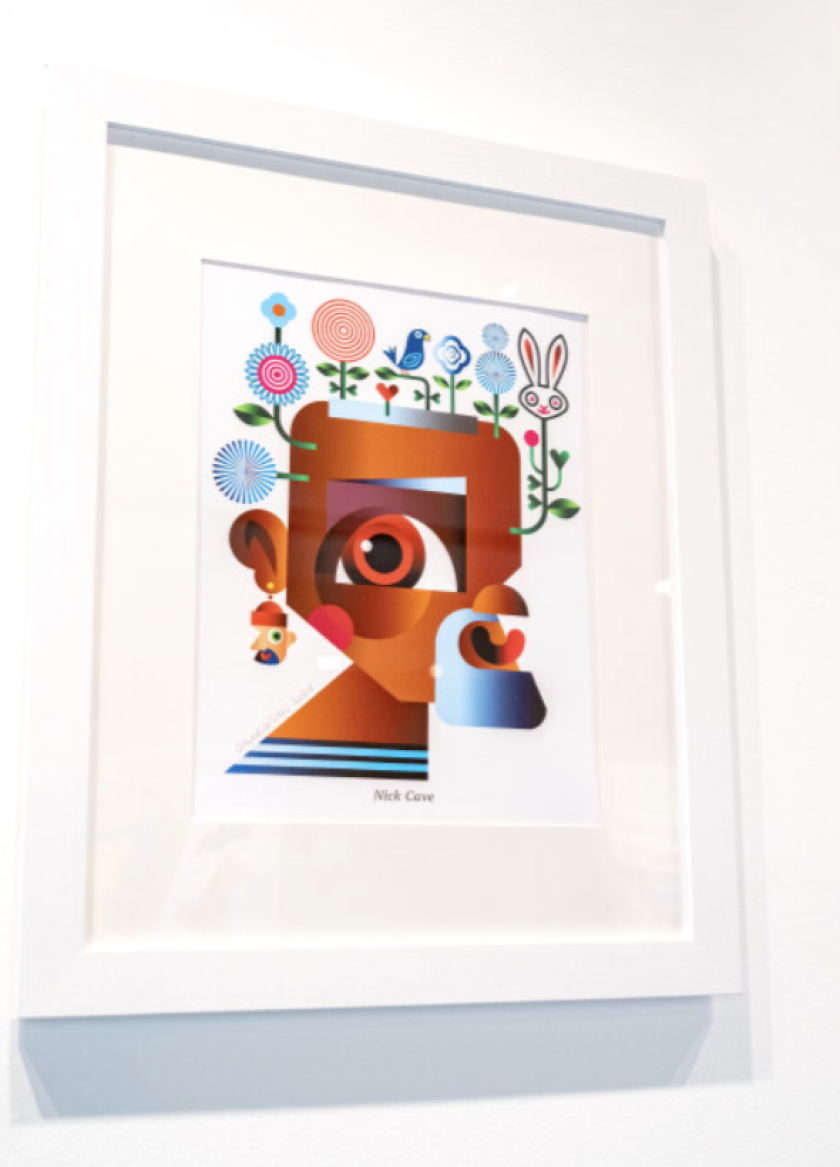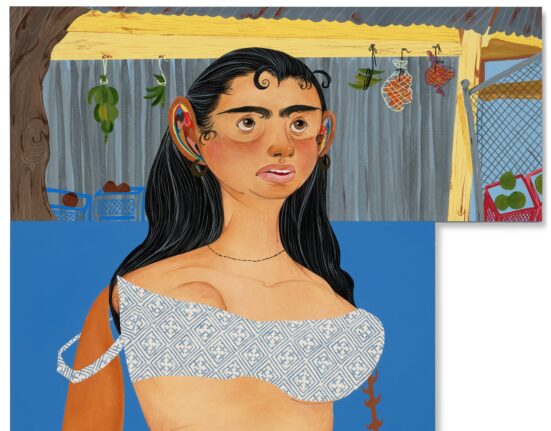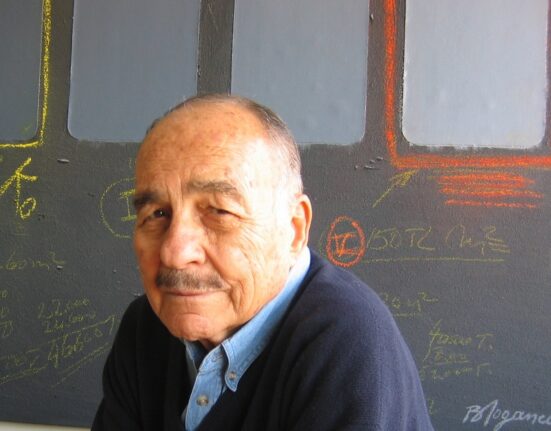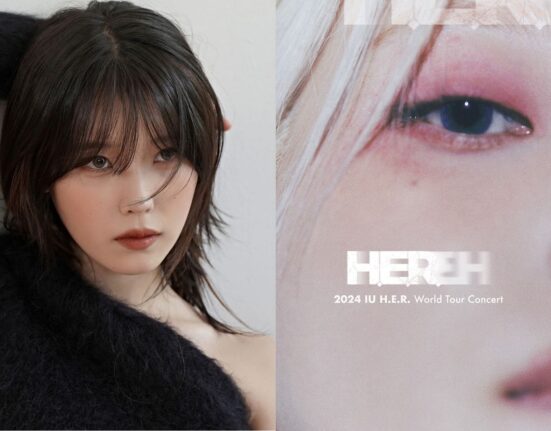Many people are familiar with Chicago artist David Lee Csicsko for his large mosaics that adorn the Belmont CTA station in Lake View, his stained glass creations for churches across the South Side or his books celebrating iconic people in various fields.
But a new gallery at the Epiphany Center for the Arts, 201 S. Ashland Ave., takes a deeper look at Csicsko’s 35-plus-year career, offering a more holistic view of the multidisciplinary artist’s work.
“Mr. Fancy Pants: A Celebration of LGBTQ+ Icons” runs through July 27 and features dozens of Csicsko’s works, ranging from some of his first published sketches in the ‘80s to illustrations of famous saints inspired by his Catholic upbringing or posters he’s made for LGBTQ+ organizations across Chicago. It’s one of six galleries featuring LGBTQ+ artists at Epiphany to celebrate Pride Month.
“This is an exhibit that reflects who I am, and I’m a complex person,” Csicsko told the Sun-Times. “I happen to be a member of the LGBTQ+ community, but at the same time I have a big history of making pictures. Everything is interconnected in this show.”
Central to the gallery is a selection of illustrations Csicsko designed for his one of his four published books: “LGBTQ+ Icons: A Celebration of Historical LGBTQ+ Icons in the Arts.”
The book features Csicsko’s drawings of 50 LGBTQ+ artists from across the world, accompanied by short biographies written by local LGBTQ+ historian Owen Keehnen. Twelve icons are featured in Csicsko’s gallery, including dancer Alvin Ailey, Keith Haring, Frida Kahlo and pioneering drag king Stormé DeLarverie.
Visitors can also get a sneak peak of Csicsko’s next book, a celebration of groundbreaking artists, due later this year. “Iconic Artists: A Celebration of the World’s Extraordinary Artists,” will be the latest in Csicsko’s People Series, which has also included books on iconic composers, scientists and fashion designers.
Eight of these illustrations are featured at Epiphany, including ones of celebrated Chicago artist Nick Cave, pop artist Andy Warhol and Henri de Toulouse-Lautrec, the printmaker who made posters for the Moulin Rouge cabaret when it opened in the late 1880s.
“I try to adapt my style to give you a clue about the style of that particular artist, so I include elements of what they do,” Csicsko said. “With Nick Cave, who’s taking the world by storm, I wanted to make reference to how his creativity is blooming in his mind.”
A common thread throughout Csicsko’s gallery is his passion for using art to give back to his communities, he said.
One of the gallery’s highlights is a large mural he painted in the late 1980s for the opening of GroceryLand, a food pantry now known as Vital Bridges that was created for people living with HIV/AIDS.
The mural is inspired by the Roman myth of Romulus and Remus, twin boys who were found by a wild she-wolf who nursed and fed them. Csicsko’s spin on the tale portrays a drag queen-esque wolf inspired by Lori Cannon, who founded GroceryLand and has been recognized by the Chicago LGBT Hall of Fame for her allyship. The she-wolf is feeding two small children and the mural is framed by vegetables and other kinds of nutritious foods available at GroceryLand.
“[Csicsko] adopted our program when he learned how we were nourishing a community under siege,” Cannon said. “His colors, beauty and dedication to heal and celebrate those who were fighting for their lives added so much for all who entered our humble space.”
Other works in the gallery include art for the Ann Sather restaurant chain, which former 44th Ward Ald. Tom Tunney bought in 1981 and posters for Unabridged Books, the 1991 Lesbian-Gay International Film Festival and the 2006 Gay Games in Chicago.
Although it’s not featured in the gallery, Csicsko also used his creativity to design the logo for Berlin Nightclub, the famous LGBTQ+ and oddball hotspot that closed after 40 years last year.
“I’m fortunate that I can draw for a living, and it’s important for me to be a good citizen by using this to help different charities and groups,” Csicsko said.
The gallery is rounded out by a series of black-and-white illustrations of famous saints Csicsko made in the early 1990s. Each image portrays small visual clues that add to the portrait’s storytelling.
It was important for Csicsko to portray his religious-inspired works in the same gallery as his more LGBTQ+-centric pieces because they add more context to who he is as an artist, he said.
“Often, that kind of work is segregated,” Csicsko said. “So to see my religious work next to my queer identity work is huge. And I think this gallery does a great job of pulling it all together with context on how it’s all related.”

